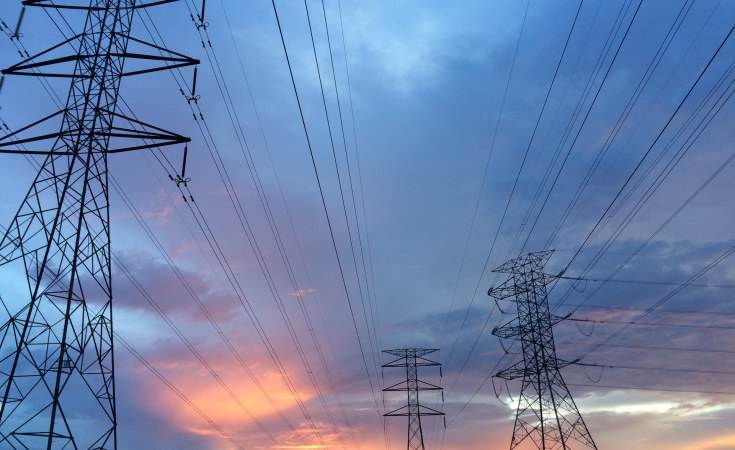ESKOM Uganda Ltd (EUL) was incorporated on November 22, 2002, and was awarded a concession to operate and maintain Nalubaale and Kiira Hydro Power stations in Jinja for 20 years. EUL took over operations and maintenance of the complex from Uganda Electricity Generation Company Ltd on April 1, 2003. Ronald Kalyango talked to Nokwanda Mngeni, Eskom's CEO about their 10th anniversary. Below are the excerpts.:
How much electricity do you generate from the two dams?
ANSWER: Eskom is a hydro power electricity generating company in Uganda and the current average production is 158megawatt hours on average. You will recall that this used to be 138megawatt hours but with the high lake levels it has increased. At peak we dispatch 230megawatts, with the lowest at 115megawatts at night.
It is important to note that Eskom'sprimary role is to generate electricity that is in turn sold to Uganda Electricity Transmission Company Limited (UETCL) the authorized single buyer. UETCL then sells the electricity to Umeme for distribution to the local consumer. In as much as Eskom Uganda Limited (EUL) is a subsidiary company of Eskom Enterprises (Proprietary) Limited, EUL isan independently run company and operates in Uganda.
What achievements have you registered in the last 10 years?
We have continued to abide by our contractual commitments, plant availability, staff development and safety performance for the last 10 years.
What does the future hold?
The same excellence you have been accustomed to: plant availability, safety, contractual compliance, staff development among others.
Why would I not have power at my home or business?
A blackout from one of the generators or coming from outside Uganda that cannot be mitigated within. The full system is then lost. When there is a transmission or distribution maintenance programme we intend to switch off our machines but also for safety reasons, certain areas might be load shaded when there is no enough supply to meet demand. As a result, power is then rationed. This is true load shedding.
How much has Eskom Uganda invested so far in the generation of electricity at Nalubaale and Kiira dams respectively to date?
Since commencement of operations, we have injected a total of $12.7m worth of investments into Nalubaale and Kiira hydro plants.
The majority of this funding has been largely raised through its retained earnings with minimal parental loan facility support. Current investment obligations over the remaining 10 year concession period amounts to over $30m of which approximately 70% shall be financed from internally generated finance without parental support. One of Eskom's major costs are derived from the aging equipment at the plants.
There are active cracks in the concrete and support structures due to the age of the plant caused by alkali aggregate reactions and alkali-silica reactions and these have to be managed in order to ensure continued production from the facilities.
How have you managed to maintain zero accident and injury rates?
Policies and procedures, one of which is our Safety, Health, Environment and Quality (SHEQ) policy. Key amongst the policy statements is that no urgency of work warrants putting any of our employees in danger.
This, the employees are sensitised on a regular basis. Inessence it means they can say no to dangerous work without fear of being fired.
All leaders, all the way to supervisors are required to carry out observations in the plant on a regular basis. This is to engage employees or contractors in the execution of their work reinforce good behaviour and engage those who are not acting safely. We maintain the philosophy that my safety alone is not enough, I also need to look out for my brother's safety and each meeting starts with prayer and a 'SHEQ' talk. This sensitises everyone to safety issues.
How many engineers have you recruited so far?
We have trained a number of young people including 21 engineers, five accountants, three procurement officers, three human resources practitioners, two communications officers, two information technology officers. We also trained 10 technicians and 10 operators.
What are some of the corporate social responsibilities that your organisation has engaged in over the years?
We have participated in a number of causes, notable of which are: donation of Maama kits to mothers in the Jinja Children's hospital, donation of clothes and money to both Buduuda and Bulambuli districts and building the Gulu war affected training centre. We have also participated in the MTN and Hared annual marathons and have been one of the funders of the source of the Nile and Eskom Open since 2009 to date
Any possibility of investing in other areas outside Nalubaale and Kiira power dams?
As we speak we are looking for clearly laid out opportunities that can provide insight and business cases which will inform whether we participate in other ventures or not.
What challenges have you encountered in the last ten years?
The shallow supplier market, the shortage of skills as well as unreliable suppliers, what they promise is not what they deliver. Water permit that restricts how much we can dispatch is also another challenge.
What will happen after the expiry of your contract?
Let us take it one step at a time. First finish the ten years with its obligations. Five years towards the end of our concession, then we shall consider what to do next.
Bujagali Dam on the River Nile in Jinja was launched last year. Together with Nalubaale and Kiira, the dams are operated and maintained by Eskom Uganda Ltd


